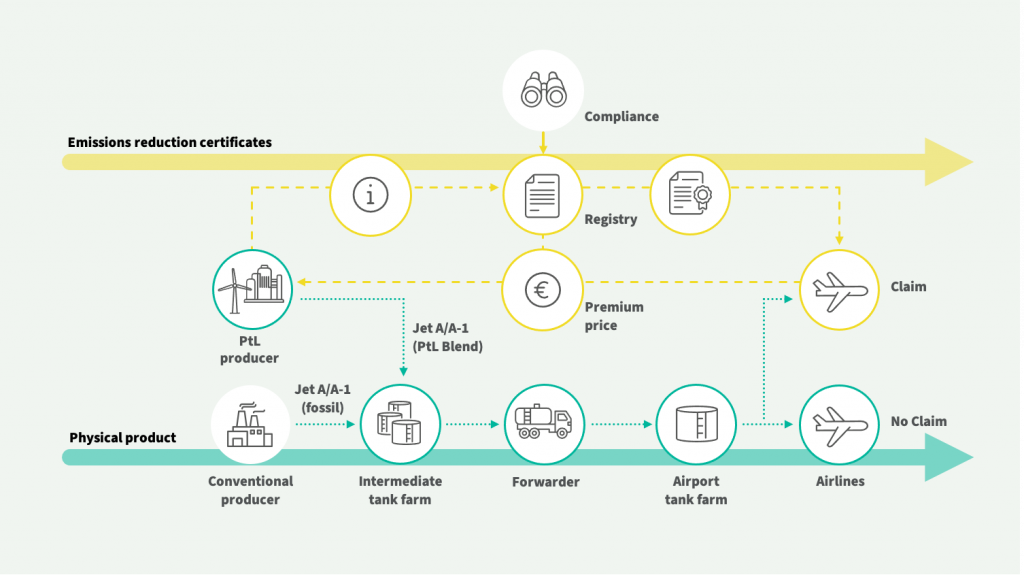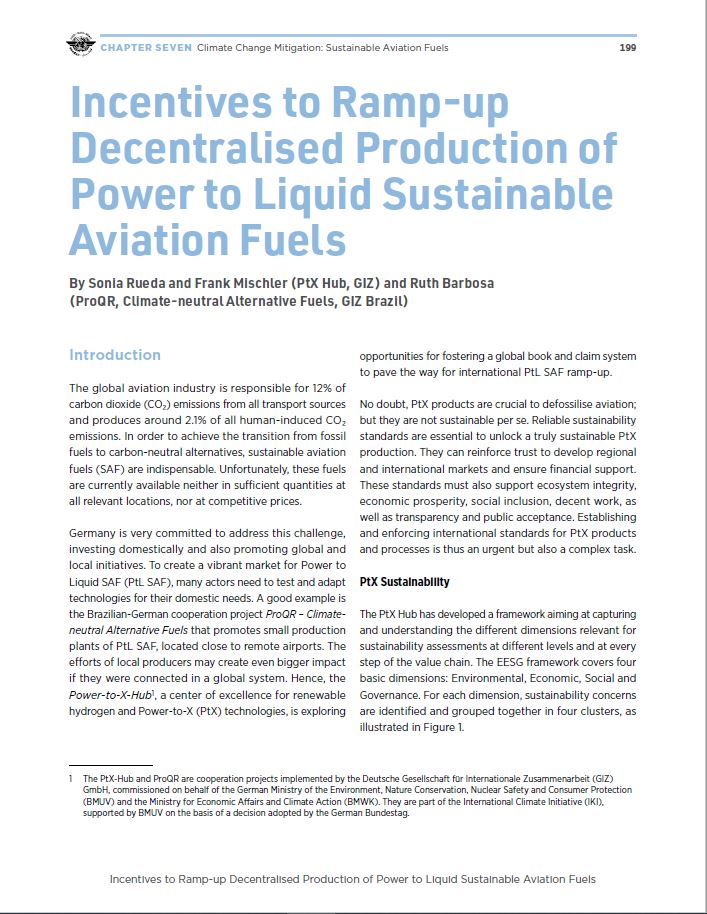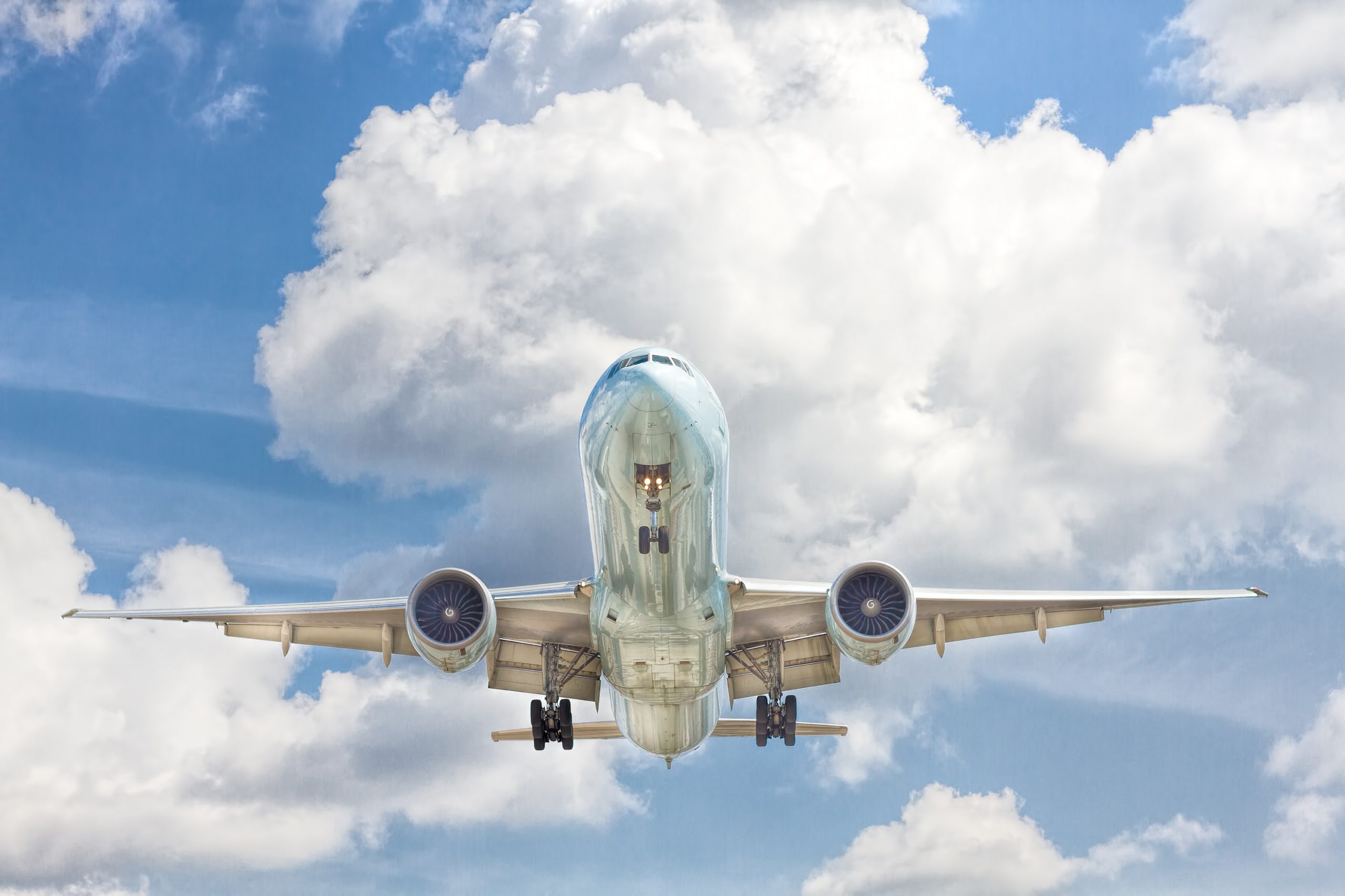Sustainable aviation fuels, based on a Power-to-Liquid technology, will be the most viable solution for climate-neutral planes. This is what the PtX Hub and ProQR argue in the 2022 edition of the International Civil Aviation Organization´s (ICAO) Environmental Report. The document’s main objective is to present the advances related to environmental protection in aviation. Among the various topics addressed, Sustainable Aviation Fuels (SAF) were highlighted as the main way to decarbonise the aviation sector and promote cleaner aviation.
The project ProQR – Climate-neutral Alternative Fuels and the International Power-to-X Hub (PtX Hub), aiming to promote sustainable alternatives to replace the use of fossil fuels, drafted Chapter 7 on “Incentives to Ramp-up Decentralised Production of Power to Liquid Sustainable Aviation Fuels” and presents the opportunities and challenges for building an international SAF market.
Globally, we transition from a world fueled by fossils to one based on renewable energy. Any product of our daily live will be produced with renewable energy as its primary energy source: From “Power” to X. This of course includes fuels and feedstocks, such as ammonia or Power-to-Liquid (PtL) for aviation (https://ptx-hub.org/how-ptx-works/). PtL, just like crude oil, can produces different kinds of fuels, among them renewable aviation paraffin, better known as Sustainable Aviation Fuels (SAF). Through these technologies, it is possible to produce fuels that can be blended with and replace the currently used kerosene without the need for major changes in the current fleet of planes.
This makes SAF an extremely viable alternative for the reduction of carbon emissions in the aviation sector. However, to create an international SAF market both the demand and the supply side need to be stimulated. Given that global aviation represents 2% of global greenhouse gas emissions – likely to increase over the next years – this shift to SAF is increasingly urgent to meet the pathway to limit global heating to 1.5 degrees.
Enabling sustainable aviation through Book and Claim and decentralised SAF production

One of the strategies pointed out by ProQR and the PtX Hub in the Environmental Report to leverage the SAF market is the use of the Book and Claim system. This carbon credit purchase system would enable the purchase of SAF without the need for physical acquisition of the product. Since SAF production depends on the geographical availability of renewable energy, Book and Claim would decrease tariffs and transport costs and the associated greenhouse gas emissions.
The set-up of such a system, however, depends on international agreements between public and private actors with the aim of regulating the processes. Still, facilitating the purchase and sale of SAF through Book and Claim could have significant impacts on the market ramp up for SAF and with it, reaching cleaner aviation.
The chapter also presents the proposals of the ProQR project to enable the production and use of SAF in Brazil. The project proposed the decentralised production of sustainable fuel, in small factories located near airports. In this way, besides enabling the start of small-scale production, which could result in a progressive and structured expansion, the availability of the fuel directly at its place of consumption would reduce carbon emissions resulting from transport.

Check out the full ICAO Environmental Report 2022.
Ruth Barbosa, Frank Mischler and Maren Schöttler contributed to this article.
